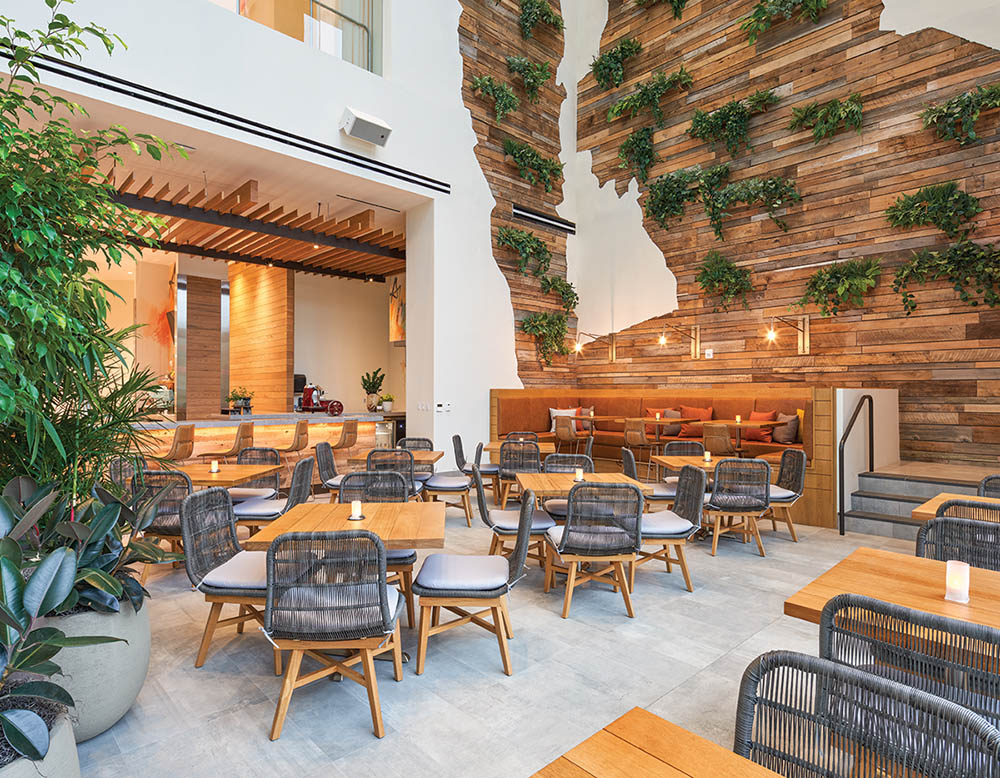Driftwood Capital Takes Advantage of the Pandemic
Coral Gables-Based Driftwood Capital was Already Investing in Hotels When Covid Created Buying Opportunities.
The idea blossomed on an airplane. Carlos Rodriguez and his son Carlos Jr. were flying to a conference in San Francisco and talking about ways to grow their hotel business. They didn’t want to scramble to raise funds from friends, family and associates every time a promising hotel deal emerged. But teaming with a big financier instead meant giving up major control.
With U.S. laws making it easier to reach out to investors, Carlos Jr. suggested raising a pool of cash in advance for hotel deals, and then selling off pieces of the new hotels to replenish the fund. The father and son sketched out the idea on a napkin. Within months, in 2015, they had started a $50 million fund honoring the elder Carlos with its name: Driftwood Acquisition and Development, or DAD.
Fast forward to 2021, and DAD, now called Driftwood Capital, has raised more than $700 million from roughly 800 high-income individuals worldwide – about half from Latin America. The company holds stakes in some 25 hotels, including two that just opened in West Palm Beach and Fort Lauderdale. Even during Covid, money keeps flowing in – partly for opportunities to buy hotels at a discount, says Carlos Sr.

“The idea has worked beautifully,” says the elder Carlos, who runs Driftwood Capital from Coral Gables, employing a staff of 40. “Now we don’t need to rely on institutional capital. We can bridge that gap with our own funds, and then, we have time to syndicate through our friends and family network.” Driftwood Capital buys or builds hotels mainly in the $30 million to $150 million range, operating the properties under brands like Marriott and InterContinental. Some of its plans are even larger: A $335 million, 502-room Westin Resort proposed for central Florida’s Cocoa Beach, for instance.
Carlos Jr. represents the third generation of the Rodriguez family in the hospitality business. His grandfather opened the first Holiday Inn in Costa Rica in 1986. His father, Carlos Sr., joined the family business after working in finance in New York, and bought another Costa Rican hotel, which he runs today as Margaritaville Beach Resort Playa Flamingo.
Carlos Sr. wanted to expand beyond Costa Rica, however. So, in 1996, he and his wife moved to South Florida to form their own hotel development company: Cardel, which created Holiday Inn Airport West and a group of smaller hotels in Doral. When 9/11 squashed plans to take Cardel public, Rodriguez joined a team in West Palm Beach that featured Lehman Brothers, the largest funder of U.S. hotels at that time. Their venture, Driftwood Hospitality Management, thrived – until Lehman Brothers filed for bankruptcy during the 2008 financial crisis. The remaining partners regrouped and today operate some 70 hotels in Florida and across the U.S. south.
Partly as a result of his dependence on Lehman, Carlos Jr. sought more ownership and financing options, prompting the idea for DAD. Today, Driftwood Capital typically keeps a 10 percent stake in each hotel it buys and develops, selling off the rest. It tends to hold properties for five to seven years, but unlike some funds, has no deadline to exit. “We’re not in a rush,” says Carlos Sr. “We sell if it’s in the best interest of our investors.”
Financing real estate through funds and syndication is popular, but what sets Driftwood Capital apart is its “laser” focus on hotels, says Ana Bozovic, a real estate broker and founder of real estate data analysis firm Analytics.Miami. She’s bullish on investment in hotels, rather than condominiums.

“Miami condos have been the store of wealth for Latin Americans who wanted to get money out of their countries, but honestly, condos are not good investments. They have very high carrying costs and very low returns under the best of circumstances,” says Bozovic. Hotels instead offer “institutional quality assets,” she says. “This is a great time to have the capital to deploy strategically in hospitality.” This is especially true in today’s Covid-19 pandemic environment. “What better time to be buying hotels than when there’s distress?” says Carlos Sr. The company raised more than $270 million in 2020 and scooped up some bargains, he says.
On the flip side, hotel operations still sag. 2020 ranked as the worst year on record for U.S. hotels, with occupancy averaging just 44 percent nationwide, says industry tracker STR. “We’re suffering the same challenges as other operators,” says Carlos Sr. “But we’re highly liquid and can sustain them better.” Driftwood Capital’s newer funds even feature one for lending to hotels in temporary distress, he says.
Still, over three generations, the Rodriguez family has weathered business cycles before. The family now is starting another chapter in hotels: Tech. Carlos Jr. says he’s spearheading the use of new technologies to raise capital, better manage the portfolio and “create exciting long-term value for our investors.”


